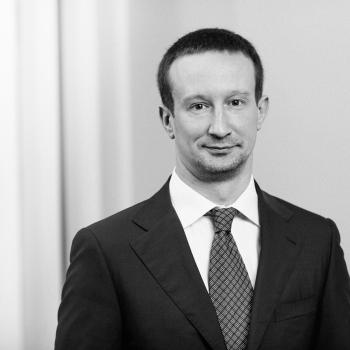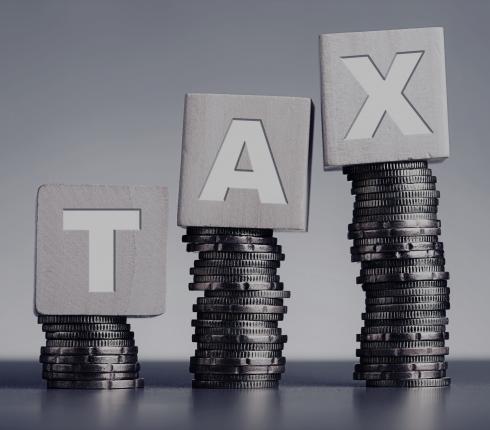NJORD LATVIA: TAX EVASION. POSSIBLE TRENDS
Recently at a joint press conference with the Prosecutor General, head of the Financial Intelligence Unit (FIU) of Latvia Ilze Znotiņa said that the service she leads is planning to actively tackle suspicious transactions in the tax area and collect information on tax evasion. She also made it clear that these transactions do not turn into secrets, even if persons switched to the banks or payment institutions in other countries.
As we know, Mrs. Znotiņa is in character with her words, and it is likely that in the near future, having set another record in the amount of frozen funds, the FIU will begin to pay increased attention to these issues. Such increased attention, of course, has every reason. As we know, the part of the shadow economy in 2019 in Latvia amounted to 23.9% of GDP, while, compared to 2018, there was only an insignificant decrease. Obviously, there is a very great potential for financial intelligence activities here.
Criminal liability for tax evasion
Criminal liability for evasion of tax payments is provided for in Section 218 of the Criminal Law of Latvia. In particular, Paragraph two of the above Section (Paragraph one is excluded) provides the applicable punishment - deprivation of liberty for a period of up to four years or temporary deprivation of liberty, or community service, or a fine, with or without the confiscation of property and with the deprivation of the right to engage in entrepreneurial activity of a specific type or of all types or to a specific employment, or the right to take up a specific office for a period of two years and up to five years.
Whereas Paragraph three of the above Section provides for increased liability in the event that a crime was committed by an organized group. In this case the applicable punishment is the deprivation of liberty for a period of up to ten years, with or without the confiscation of property and with the deprivation of the right to engage in entrepreneurial activity of a specific type or of all types or to a specific employment, or the right to take up a specific office for a period of two years and up to five years, and with probationary supervision for a period of up to three years.
In the first case a crime is considered serious in second – especially serious. In both cases, criminal liability arises if the amount of unpaid taxes at the time of the commission of the crime was not less than the total amount of 50 minimum monthly wages established in the Republic of Latvia (large amount), which is 21,500 euros as of the current year.
The trend emerging in judicial practice shows that in cases of tax crimes, the courts have taken a course towards imposing punishment in the form of real imprisonment and refusal of conditional imprisonment in this category of crimes. At the moment, there are no prerequisites for this trend to change.
How tax evasion occurs
In practice, the most common way of tax evasion is fictitious transactions for the supply of goods and services by companies, which sometimes are fictitious, but sometimes running a regular legal business in parallel. As a result of such transactions, unjustified transactions are included in the VAT declaration, and the VAT amounts on these transactions are included in the provisional tax, reducing the total amount of taxes payable.
Even in the recent past, some of the taxpayers indulged themselves in such transactions. These transactions can obviously attract the attention of the FIU in the first place, and definitely they will have room for activity here.
There are also cases when part of the income from entrepreneurial activity is not reflected in declarations and the annual report, thus reducing the taxable base. Sometimes a completely unregistered activity is carried out, and the entrepreneur simply puts the earned money in his pocket without submitting any reports. In other cases, taxes are not paid until the tax debt exceeds 50 minimum monthly wages - the threshold for criminal liability.
Statute of limitations
As already mentioned, tax evasion can be classified either as a serious or especially serious crime. In accordance with the Criminal Law, the statute of limitations for such cases is 10 and 15 years, respectively. This period of time begins to run from the day when the crime was committed - from the moment when the obligation to pay the tax amount in accordance with the law has been deliberately not fulfilled and the total amount thereof has reached 50 minimum monthly wages.
Based on these terms, as well as the methods of the FIU already known to us, in cases related to the legalization of money acquired by criminal means, we can expect in-depth inspections of the activities of enterprises for the entire period before the statute of limitations, and amendments in legislation that change the generally accepted presumption and oblige a person to provide evidence that a particular transaction in, for example, 2012 really took place. Also, it is not hard to imagine that property, in our case - income received as a result of tax evasion, - can be recognized as property directly or indirectly obtained as a result of a crime with all the possible consequences.
Additional information
For more information, please contact our partner of the NJORD Law Firm, sworn attorney-at-law Sergey Petrov (sp@njordlaw.lv)
NJORD – a law firm with offices in Denmark, Estonia, Latvia and Lithuania. We have over 200 employees, about a half of which are lawyers. Our Dispute Resolution Department is renowned for successfully assisting famous local customers as well as leading international companies, while being the first choice for Scandinavian, Baltic and Russian customers. We offer a full service in civil, administrative and criminal proceedings (especially in cases related to the property acquired by criminal means, money laundering and tax crimes). Our lawyers have extensive knowledge of the principles, methods and practice of national courts, prosecution authorities and other law enforcement agencies. We are often recommended and hired as litigation attorneys.
Our criminal law practice is developing at a rapid pace. Our services amongst others include:
- protection of detainees, suspects and accused in proceedings related to financial or economic crimes;
- providing legal assistance to victims and witnesses;
- representation of interests of a civil plaintiff in criminal proceedings;
- legal assistance and representation in cases on property acquired by criminal means.














